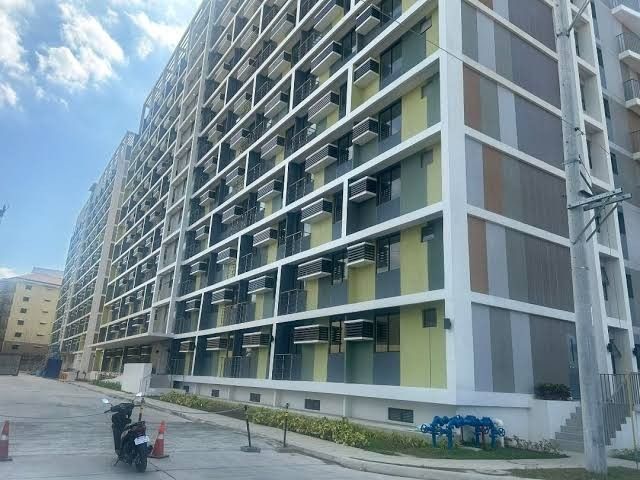
Renting a condo can be an exciting venture, providing you with the comforts and amenities of a high-end residential complex without the long-term commitment of ownership. However, condo living comes with a unique set of rules and regulations that you need to understand and follow. These rules, established by the condo association, ensure a harmonious living environment for all residents. This guide will help you navigate the complex world of condo association rules and regulations, ensuring a smooth and enjoyable rental experience.
Understanding Condo Associations
A condo association, often referred to as a homeowners’ association (HOA) in the context of condos, is an organization formed by the residents of a condominium complex. The primary purpose of the condo association is to manage and maintain the common areas and enforce rules and regulations that enhance the quality of life within the community. These rules are typically outlined in the association’s governing documents, which include the Declaration of Covenants, Conditions, and Restrictions (CC&Rs), bylaws, and house rules. For more information or to read all about chuan park condo photos, feel free to visit their page to learn more.
The Role of the Condo Association
The condo association is responsible for:
- Maintaining Common Areas: This includes the upkeep of lobbies, hallways, swimming pools, gyms, and other shared facilities.
- Enforcing Rules and Regulations: Ensuring that all residents adhere to the community’s guidelines to maintain order and harmony.
- Financial Management: Collecting dues from residents to fund maintenance, repairs, and other community expenses.
- Conflict Resolution: Addressing disputes between residents or between residents and the association.
Key Rules and Regulations
1. Lease Restrictions
Many condo associations have specific rules regarding leasing units. These can include:
- Lease Term Length: Minimum and maximum durations for leases.
- Tenant Screening: Approval processes for new tenants, which may include background checks and credit reports.
- Occupancy Limits: Restrictions on the number of occupants per unit.
2. Use of Common Areas
Common areas are shared spaces meant for the enjoyment of all residents. Rules typically cover:
- Hours of Operation: Specific times during which facilities like the gym or pool can be used.
- Guest Policies: Guidelines on the number of guests you can invite and their access to amenities.
- Reservation Systems: Procedures for reserving common areas for private events.
3. Noise Regulations
To ensure a peaceful living environment, condo associations often enforce strict noise regulations:
- Quiet Hours: Designated times, usually during the night, when noise must be kept to a minimum.
- Noise Levels: Restrictions on loud music, parties, and other disruptive activities.
4. Pet Policies
If you have pets or plan to get one, it’s crucial to understand the association’s pet policies:
- Pet Size and Type: Restrictions on the breed, size, and number of pets allowed.
- Pet Behavior: Rules regarding pet noise, waste disposal, and leash requirements.
- Pet Fees: Additional charges or deposits required for pet ownership.
5. Renovations and Alterations
Condo associations typically regulate modifications to units to maintain the building’s integrity and uniform appearance:
- Approval Processes: Requirements for obtaining permission before making significant changes to your unit.
- Construction Hours: Designated times when construction work is allowed.
- Standards and Specifications: Guidelines on the types of materials and designs permitted.
6. Parking Regulations
Parking can be a contentious issue in condo complexes. Rules often address:
- Assigned Parking: Designated spots for residents and visitors.
- Parking Permits: Requirements for parking permits and how they are obtained.
- Vehicle Restrictions: Prohibitions on certain types of vehicles, such as commercial trucks or recreational vehicles.
7. Trash and Recycling
Proper waste management is essential for maintaining cleanliness and hygiene in the condo complex:
- Collection Schedules: Specific days and times for trash and recycling pickup.
- Disposal Methods: Guidelines on how to dispose of different types of waste.
- Penalties: Consequences for improper waste disposal.

Navigating Condo Association Rules
1. Read the Governing Documents
As a renter, it’s imperative to thoroughly read and understand the condo association’s governing documents. These include the CC&Rs, bylaws, and house rules. Familiarizing yourself with these documents will help you avoid unintentional rule violations.
2. Communicate with the Landlord
Your landlord should provide you with all necessary information regarding the condo association’s rules. If there’s anything you don’t understand, ask for clarification. It’s also a good idea to confirm that the landlord has complied with all association requirements for leasing their unit.
3. Attend Association Meetings
While renters are often not required to attend condo association meetings, doing so can be beneficial. Meetings are a good opportunity to stay informed about any changes to rules and regulations and to voice any concerns you may have.
4. Build Relationships with Neighbors
Establishing good relationships with your neighbors can make your rental experience more enjoyable. Neighbors can provide valuable insights into living in the condo community and help you navigate the association’s rules.
5. Report Issues Promptly
If you encounter any issues, such as maintenance problems or rule violations by other residents, report them to the condo association promptly. Addressing problems early can prevent them from escalating.
6. Stay Informed
Condo associations may periodically update their rules and regulations. Make sure you stay informed about any changes by checking notices, attending meetings, or communicating with your landlord.
Benefits of Adhering to Condo Association Rules
Following the condo association’s rules and regulations offers several benefits:
- Enhanced Living Environment: Adherence to rules ensures a clean, safe, and pleasant living environment for all residents.
- Community Harmony: Respecting the guidelines helps prevent conflicts and fosters a sense of community.
- Preservation of Property Value: Proper maintenance and uniform standards contribute to the overall appeal and value of the property.
- Access to Amenities: Compliance with rules ensures continued access to shared amenities and facilities.
Conclusion
Renting a condo comes with the added responsibility of adhering to the condo association’s rules and regulations. Understanding and following these guidelines is crucial for maintaining a harmonious and enjoyable living environment. By familiarizing yourself with the association’s governing documents, communicating effectively with your landlord, and staying engaged with the community, you can ensure a positive rental experience.








